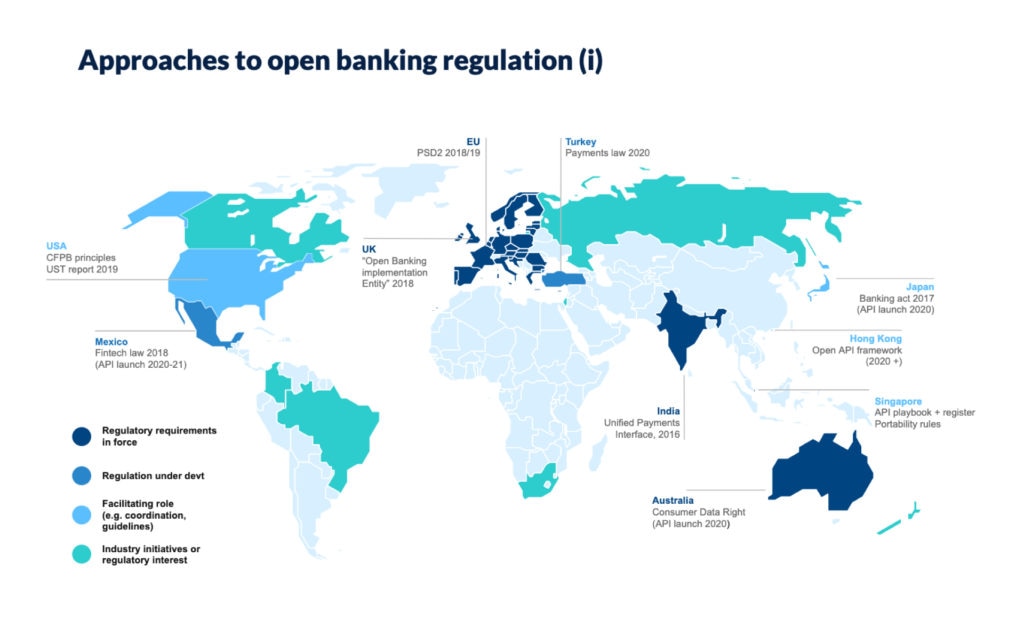
Consumer Protection in Financial Services: Your Essential Guide to Key Regulations
Navigating the world of financial services – from opening a bank account and applying for a loan to investing in stocks or buying insurance – can feel incredibly complex. Banks, credit unions, lenders, investment firms, and insurance companies offer a vast array of products and services, each with its own terms, conditions, and potential risks.
But imagine a world where you had no idea what interest rate you were paying on a loan, or if your bank could just share your personal financial details with anyone. Or what if a stockbroker could recommend investments that only benefited them, not you? This is where consumer protection in financial services comes in.
It’s a critical safety net, designed to ensure fairness, transparency, and accountability in an industry that deeply impacts our daily lives. For beginners, understanding these protections can seem daunting, but it’s essential for safeguarding your money and making informed financial decisions. This article will demystify the key regulations that stand guard over your financial well-being.
Why Consumer Protection Matters in Finance: The Uneven Playing Field
At its heart, consumer protection exists because there’s often an imbalance of power and information between the financial institution and the individual consumer.
- Complexity of Products: Financial products can be incredibly intricate, filled with jargon and fine print that’s hard for the average person to understand.
- Information Asymmetry: Financial institutions possess far more information about their products, fees, and risks than a typical consumer.
- Potential for Abuse: Without rules, there’s a risk of predatory lending, unfair fees, discriminatory practices, or misleading advertising.
- Trust and Stability: A robust regulatory framework builds consumer trust, which is vital for the stability and health of the entire financial system. If people don’t trust financial institutions, they won’t use them, leading to economic stagnation.
- Economic Impact: Financial decisions often involve significant amounts of money and have long-term consequences for individuals and families, making protection even more crucial.
The Regulatory Landscape: Who’s in Charge of Protecting You?
You might think there’s one big agency overseeing everything, but financial regulation in the U.S. is a complex web involving multiple federal and state bodies. Each has a specific area of focus, working together (and sometimes separately) to protect consumers.
A. The Heavy Hitters (Federal Agencies):
-
Consumer Financial Protection Bureau (CFPB):
- Role: Created in the wake of the 2008 financial crisis by the Dodd-Frank Act, the CFPB is arguably the most direct consumer advocate. It’s tasked with protecting consumers in the financial marketplace.
- What they do: Write and enforce rules for financial products and services, take consumer complaints, and educate consumers. They cover areas like mortgages, credit cards, student loans, bank accounts, and payday loans.
- Key Focus: Ensuring clear and fair dealings, preventing deceptive practices, and making it easier for consumers to understand financial products.
-
Securities and Exchange Commission (SEC):
- Role: Primarily responsible for protecting investors in the stock market and other securities markets.
- What they do: Enforce federal securities laws, regulate exchanges, and oversee the activities of investment brokers and advisors. Their goal is to ensure fair and orderly markets and protect investors from fraud.
-
Financial Industry Regulatory Authority (FINRA):
- Role: Not a government agency, but a "self-regulatory organization" (SRO) authorized by Congress to oversee broker-dealers.
- What they do: Write and enforce rules for brokerage firms and brokers, examine firms for compliance, and discipline those who violate rules. They also provide arbitration and mediation services for disputes.
-
Federal Deposit Insurance Corporation (FDIC):
- Role: Protects bank depositors by insuring their deposits (up to $250,000 per depositor, per insured bank, for each account ownership category).
- What they do: Oversee and examine financial institutions for safety and soundness, and manage failing banks. While their primary role is deposit insurance, their oversight helps prevent practices that could harm consumers and the banking system.
-
Office of the Comptroller of the Currency (OCC):
- Role: Charters, regulates, and supervises all national banks and federal savings associations.
- What they do: Ensure these institutions operate in a safe and sound manner, provide fair access to financial services, and comply with consumer protection laws.
-
National Credit Union Administration (NCUA):
- Role: The federal equivalent of the FDIC for credit unions. It insures deposits at federal credit unions and supervises credit unions.
- What they do: Protects member deposits (also up to $250,000) and ensures credit unions operate responsibly and fairly.
-
Federal Trade Commission (FTC):
- Role: A broader consumer protection agency that also has jurisdiction over certain financial services, especially concerning privacy, data security, and deceptive practices.
- What they do: Enforce laws against unfair, deceptive, or fraudulent business practices, including those by non-bank lenders or companies that handle personal financial information.
B. State Regulators:
In addition to federal agencies, each state has its own departments or commissions that regulate various financial services, especially insurance companies, state-chartered banks, credit unions, and specific types of lenders (like mortgage brokers or payday lenders). They often work in conjunction with federal laws.
Key Regulations Protecting Your Financial Rights: The Laws that Matter
While the agencies enforce the rules, the rules themselves come from specific laws passed by Congress. Here are some of the most important ones for consumers:
A. Credit & Lending Protections:
These laws aim to make credit fair, transparent, and accessible, while also protecting you from unfair collection practices.
-
Truth in Lending Act (TILA) – Regulation Z:
- What it does: Requires lenders to disclose the true cost of credit in an easy-to-understand way.
- Key Protections for You:
- APR Disclosure: You must be told the Annual Percentage Rate (APR), which is the true cost of borrowing over a year, including interest and other fees.
- Finance Charge: Lenders must clearly state the total dollar amount of all charges and fees you’ll pay to get the credit.
- Right of Rescission: For certain home equity loans or refinancing (but not for a purchase mortgage), you have a three-day "cooling off" period to cancel the agreement without penalty.
- Credit Card Protections: Limits your liability for unauthorized credit card use (usually to $50) and regulates billing error resolution.
-
Equal Credit Opportunity Act (ECOA) – Regulation B:
- What it does: Prohibits discrimination in credit transactions based on certain personal characteristics.
- Key Protections for You: Lenders cannot discriminate against you based on:
- Race, color, religion, national origin
- Sex or marital status
- Age (as long as you have the capacity to contract)
- Receipt of public assistance income
- The fact that you have, in good faith, exercised any right under the Consumer Credit Protection Act.
-
Fair Credit Reporting Act (FCRA):
- What it does: Regulates how consumer credit information is collected, used, and disseminated. It ensures accuracy, fairness, and privacy of your credit report.
- Key Protections for You:
- Right to Access: You have the right to a free copy of your credit report from each of the three major credit bureaus (Equifax, Experian, TransUnion) once every 12 months (via AnnualCreditReport.com).
- Right to Dispute: If you find errors on your credit report, you have the right to dispute them, and the credit bureau must investigate and correct them if inaccurate.
- Limited Access: Only those with a legitimate need (like lenders, insurers, employers, landlords) can access your credit report.
- Identity Theft Protections: Includes provisions for fraud alerts and credit freezes.
-
Fair Debt Collection Practices Act (FDCPA):
- What it does: Protects consumers from abusive, deceptive, and unfair debt collection practices by third-party debt collectors.
- Key Protections for You: Debt collectors generally cannot:
- Harass, oppress, or abuse you or any third parties.
- Use false or misleading statements.
- Engage in unfair practices (e.g., collecting more than you owe).
- Call you at unusual times (e.g., before 8 AM or after 9 PM your time) or at work if you tell them not to.
- Discuss your debt with third parties (except your attorney or spouse).
B. Banking & Payment Protections:
These laws govern how your money is handled in bank accounts and through electronic transactions.
-
Electronic Fund Transfer Act (EFTA) – Regulation E:
- What it does: Provides a framework for the rights, liabilities, and responsibilities of participants in electronic fund transfer (EFT) systems. This covers debit cards, ATM transactions, direct deposits, and online bill payments.
- Key Protections for You:
- Liability Limits: Caps your liability for unauthorized use of a lost or stolen debit card, especially if you report it quickly (e.g., $50 if reported within 2 business days).
- Error Resolution: Requires financial institutions to investigate and resolve errors related to EFTs within specific timeframes.
- Receipts: You must receive receipts for ATM transactions and point-of-sale debit card purchases.
- Overdraft Opt-In: Banks generally cannot charge you an overdraft fee for ATM or one-time debit card transactions unless you have specifically "opted in" to their overdraft service.
-
Gramm-Leach-Bliley Act (GLBA):
- What it does: Requires financial institutions to explain their information-sharing practices to customers and to safeguard sensitive data.
- Key Protections for You:
- Privacy Notices: Financial institutions must provide clear notices about their privacy policies, including what information they collect, where they share it, and how they protect it.
- Opt-Out Rights: You often have the right to "opt out" of sharing certain non-public personal information with unaffiliated third parties.
- Safeguards Rule: Requires financial institutions to implement security measures to protect customer information.
-
Dodd-Frank Wall Street Reform and Consumer Protection Act (Dodd-Frank Act):
- What it does: While a massive piece of legislation, its most direct impact on consumer protection was the creation of the CFPB (as discussed above). It also brought significant reforms to mortgage lending, derivatives, and financial stability.
- Key Protections for You: Beyond the CFPB, it aimed to prevent future financial crises by increasing transparency and accountability across the financial system, which indirectly protects consumers from systemic risks.
C. Investment & Securities Protections:
These laws are designed to protect investors from fraud and ensure that investment professionals act in their clients’ best interests.
-
Securities Act of 1933 and Securities Exchange Act of 1934:
- What they do: These foundational laws created the SEC and established the basic framework for regulating the U.S. securities markets.
- Key Protections for You:
- Disclosure: Companies offering securities to the public must register with the SEC and provide extensive financial and other information to potential investors (e.g., through a prospectus).
- Anti-Fraud Provisions: Prohibit fraud and deception in the sale of securities.
- Regulation of Exchanges: Regulate stock exchanges and brokerage firms.
-
Investment Advisers Act of 1940:
- What it does: Regulates investment advisers, defining them as people or firms who, for compensation, advise others about securities.
- Key Protections for You: Establishes a "fiduciary duty" for investment advisers. This means they must act in their clients’ best interest and disclose any potential conflicts of interest.
-
FINRA Rules (Suitability and Best Interest):
- What they do: FINRA’s rules impose specific obligations on broker-dealers when recommending investments to customers.
- Key Protections for You:
- Suitability Rule: Requires brokers to have a reasonable basis for believing that a recommendation is suitable for a particular customer based on their financial situation, investment objectives, and risk tolerance.
- Regulation Best Interest (Reg BI): A newer rule that requires broker-dealers to act in the "best interest" of their retail customers when making a recommendation of any securities transaction or investment strategy. This is a higher standard than suitability, requiring them to consider costs, risks, and other factors.
D. Insurance Protections:
While primarily regulated at the state level by State Departments of Insurance, some federal laws also touch upon insurance (e.g., privacy under GLBA, or certain aspects of health insurance under federal health laws).
- State Regulations: Each state has comprehensive laws covering:
- Licensing: Ensuring insurance companies and agents are properly licensed.
- Policy Content: Mandating certain clauses and disclosures in insurance policies.
- Claims Handling: Regulating how quickly and fairly claims must be processed.
- Solvency: Ensuring insurance companies have enough money to pay claims.
- Unfair Practices: Prohibiting deceptive advertising, misrepresentation, and other unfair practices.
What These Regulations Mean for You: Practical Benefits
These laws and the agencies that enforce them translate into tangible benefits for everyday consumers:
- Transparency: You get clear, consistent information about costs, terms, and conditions before you commit.
- Fairness: You’re protected from discrimination, predatory practices, and unreasonable fees.
- Privacy: Your sensitive financial information is better protected from unauthorized access and sharing.
- Recourse: If something goes wrong, you have avenues to dispute errors, report misconduct, and seek resolution.
- Stability: The overall financial system is more stable, reducing the risk of major collapses that could impact your savings and investments.
- Trust: A regulated environment fosters trust, encouraging more people to participate in the financial system.
How Consumers Can Protect Themselves: Beyond the Regulations
While a robust regulatory framework is vital, consumer protection is also a two-way street. Your active participation is key to safeguarding your financial health.
- Be Informed: Understand the basics of financial products before you sign up. Don’t be afraid to ask questions until you understand.
- Read the Fine Print: It’s tedious, but the terms and conditions contain crucial information about fees, interest rates, and your rights.
- Monitor Your Accounts: Regularly check your bank statements, credit card bills, and credit reports for any unauthorized activity or errors.
- Know Your Rights: Familiarize yourself with the basic protections offered by laws like TILA, FCRA, and EFTA.
- Keep Records: Save copies of contracts, statements, and correspondence with financial institutions.
- Report Issues Promptly: If you suspect fraud, identity theft, or an unfair practice, report it immediately to the financial institution and, if necessary, to the relevant regulatory agency (like the CFPB or FTC).
- Use Official Channels: When disputing errors or filing complaints, use the official processes provided by the institution and regulators.
- Seek Independent Advice: For complex financial decisions, consider consulting a reputable and independent financial advisor.
Conclusion
Consumer protection in financial services isn’t just about preventing bad actors; it’s about building a foundation of trust, fairness, and transparency that benefits everyone. From the moment you open a bank account to the day you plan for retirement, a complex but essential network of laws and agencies works to safeguard your financial well-being.
While the regulations provide a powerful shield, the ultimate responsibility lies with you, the consumer. By understanding your rights, staying informed, and being vigilant, you can navigate the financial landscape with greater confidence and secure your financial future. Remember, an informed consumer is a protected consumer.



Post Comment